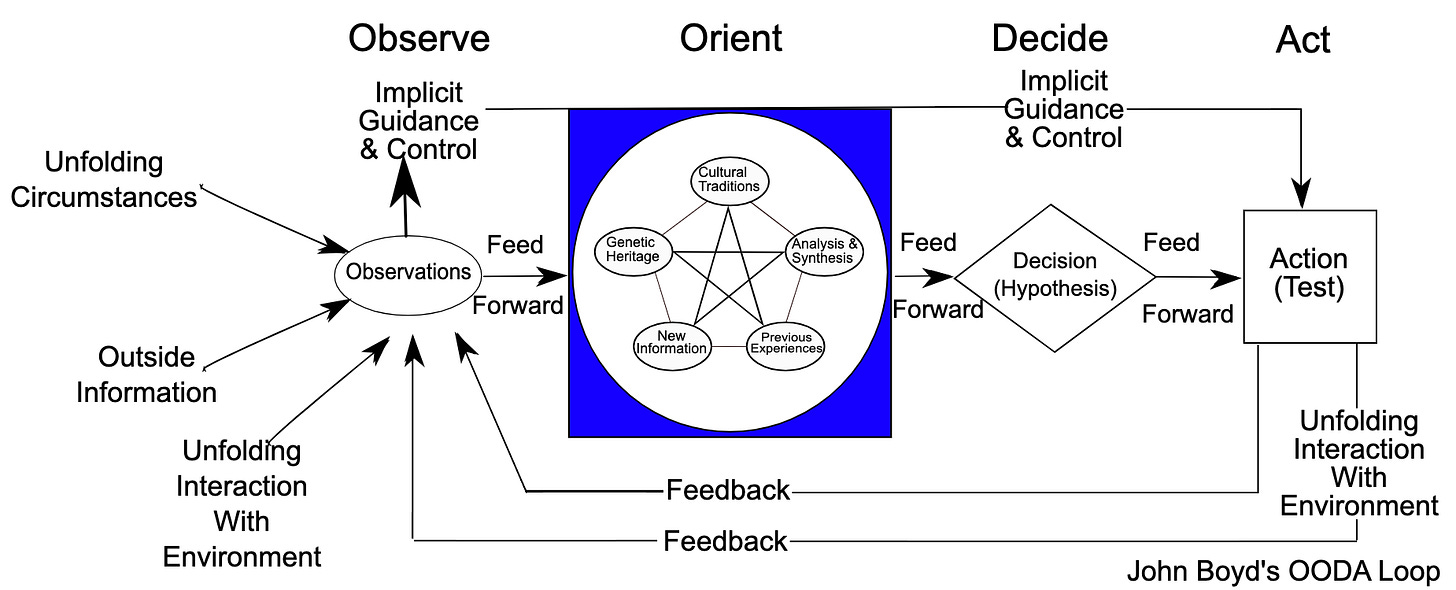Leadership Predispositions
And the environments that attract them
Just saw a discussion about "bias for action" today. The author was pushing back, observing that taking even a short time to consider options can greatly improve outcomes. I think the reality is more... interesting.
While training soldiers in the U.S. Army, I observed that some aspiring leaders were predisposed to action, and some were predisposed to reflection. Reflection-oriented leaders would emphasize data gathering and planning. Action-oriented leaders would take charge and make decisions quickly.
And both would fail in the field. Reflection-oriented leaders tended to lock up under pressure and get outmaneuvered by an aggressive enemy, while action-oriented leaders would get distracted, get lost, and get ambushed. To succeed, they needed to learn from each other.
Effective leadership requires both - and NOT in some watered-down "compromise" form - but in fierce, rapid cycles of deep reflection followed by decisive action. The ability to move adroitly between these modes is a sign of maturing leadership.
This reality is captured in the OODA loop concept: observe, orient, decide, and act. Originally developed for fighter pilots, the intent is to move through the loop faster than your opponent, and in so doing control the engagement by "getting inside" your opponent's loop.
The "bias for action" folks may be saying, "See! Go FASTER!"... but that is missing the substance of what is happening in the loop. Observe & Orient are reflective: they are about understanding reality, and allowing that understanding to drive effective decisions and action. OODA is reflection and action, each fully realized and then tightly coupled.
One final note...
Different environments naturally favor different biases. VC-backed SaaS (for instance) is like a treasure hunt: the faster you can dig holes, the faster you might find treasure! Aerospace manufacturing (for instance) is more like traversing a minefield: if you're not sure of the path forward, it's usually best not to make any sudden moves.
We're naturally drawn to environments that reinforce our biases, and that can make it easier to confuse the environmentally-favored approach that "worked for us" with universal leadership principles. But to really grow requires engaging with people and environments that challenge our assumptions.


